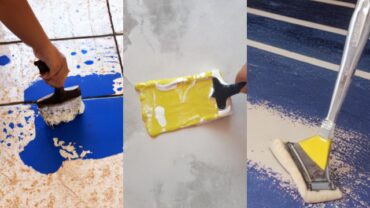10 Bed Sheet Mistakes Ruining Your Sleep – Fix Them Now!
A good night’s sleep is essential for overall health and well-being. However, many people overlook how their bed sheets impact sleep quality. The wrong sheets, poor maintenance, or improper usage can lead to discomfort, overheating, or even allergies.
If you often wake up feeling tired or restless, your bed sheets might be the culprit. In this guide, we will explore ten common bed sheet mistakes and simple ways to fix them so you can enjoy a more restful and comfortable sleep.
1. Choosing the Wrong Sheet Material
The material of your sheets plays a crucial role in sleep quality. Some fabrics can trap heat and moisture, making you sweat and disrupting sleep. Others may feel rough against the skin, causing irritation.
How to Fix It
- Cotton: A breathable, moisture-wicking material that helps regulate body temperature. Ideal for year-round use.
- Bamboo: Naturally hypoallergenic and antimicrobial, great for sensitive skin and hot sleepers.
- Linen: Highly breathable and durable, perfect for hot climates but has a coarse texture that softens over time.
- Microfiber & Polyester: Budget-friendly and wrinkle-resistant but can trap heat and cause discomfort for hot sleepers.
- Silk: Luxurious and gentle on skin but requires high maintenance and can be costly.
Choose a material based on your specific sleep preferences and climate.
2. Using Ill-Fitting Sheets
Sheets that are too big or too small can bunch up, slip off the mattress, or create uncomfortable wrinkles that disrupt sleep. Loose sheets can also cause discomfort when turning in bed.
How to Fix It
- Measure your mattress: Ensure you buy the right size, considering mattress depth if you use a topper.
- Deep-pocket sheets: If you have a thick mattress or use a mattress pad, opt for sheets with deeper pockets to prevent slipping.
- Elastic corners & sheet straps: These help keep the fitted sheet in place all night without adjustments.
- Tight weaves & higher GSM fabrics: Sheets with tight weaves are more structured and fit better than looser fabrics.
3. Not Washing Sheets Regularly
Sweat, body oils, dead skin cells, and dust mites accumulate on sheets over time. This buildup can trigger allergies, acne, and unpleasant odors, ultimately affecting sleep quality.
How to Fix It
- Wash sheets weekly: Use warm or hot water to kill bacteria and remove buildup.
- Use a gentle detergent: Harsh chemicals can wear down fabric and cause skin irritation.
- Dry thoroughly: Ensure sheets are completely dry before use to prevent mildew growth.
- Rotate multiple sets: Having multiple sheet sets allows you to change them frequently without hassle.
4. Skipping the Flat Sheet
Many people skip the flat sheet, believing it to be unnecessary. However, a flat sheet provides an extra layer of hygiene by protecting the duvet or comforter from body oils and sweat.
How to Fix It
- Use a flat sheet to extend duvet life: Washing a duvet cover frequently is difficult, but a flat sheet is easy to clean.
- Enhance sleep comfort: A flat sheet can regulate temperature and provide additional softness.
- Tuck it properly: Use hospital corners to prevent it from becoming loose and tangled during sleep.
5. Ignoring Pillow Care
Pillows absorb sweat, oils, and dust, which can cause allergies, acne, and poor support over time. Neglecting pillow care can lead to an unhygienic and uncomfortable sleeping environment.
How to Fix It
- Wash pillowcases weekly: This helps remove bacteria and allergens.
- Clean pillows every 3-6 months: Many pillows are machine washable; check labels for proper care.
- Use pillow protectors: These prevent sweat and dirt from seeping into the pillow.
- Replace pillows every 1-2 years: Worn-out pillows lose their shape and support, leading to neck pain.
6. Using Low-Quality Sheets
Low-quality sheets tend to feel rough, wear out quickly, and pill over time, making sleep uncomfortable.
How to Fix It
- Thread count matters: Look for sheets with a thread count between 200-400 for softness and durability.
- Choose long-staple cotton: Egyptian or Pima cotton lasts longer and feels smoother than standard cotton.
- Avoid synthetic blends: While cheaper, synthetic sheets may cause overheating and discomfort.
7. Overlooking Mattress Protection
Without a mattress protector, sweat, dust mites, and bacteria can accumulate, reducing the lifespan of your mattress and causing allergies.
How to Fix It
- Use a waterproof mattress protector: This prevents spills and stains from damaging your mattress.
- Wash it every month: Keep it clean and fresh by washing it regularly.
- Choose a breathable protector: Avoid plastic-like protectors that trap heat and cause discomfort.
8. Tucking Sheets Too Tightly
Tightly tucked sheets can make it difficult to move in bed, causing restlessness and discomfort.
How to Fix It
- Leave some slack: Give yourself enough room to move freely.
- Try an untucked style: If you prefer more flexibility, avoid fully tucking in the sheets.
- Use a looser weave fabric: These sheets naturally conform to your body, providing a snug but non-restrictive fit.
9. Neglecting Seasonal Bedding Changes
Using the same bedding year-round can make you too hot in summer or too cold in winter, disrupting your sleep.
How to Fix It
- Summer: Use breathable materials like linen or percale cotton to stay cool.
- Winter: Opt for flannel, fleece, or heavyweight cotton to retain warmth.
- Layer bedding: Add or remove blankets depending on the season for better comfort.
10. Not Replacing Worn-Out Sheets
Over time, sheets lose their softness and can develop holes or pilling, making sleep uncomfortable.
How to Fix It
- Replace sheets every 2-3 years: Look for signs of thinning fabric, faded colors, or rough textures.
- Invest in high-quality replacements: While expensive, better sheets provide long-lasting comfort and durability.
- Store sheets properly: Fold and store them in a cool, dry place to maintain freshness.



